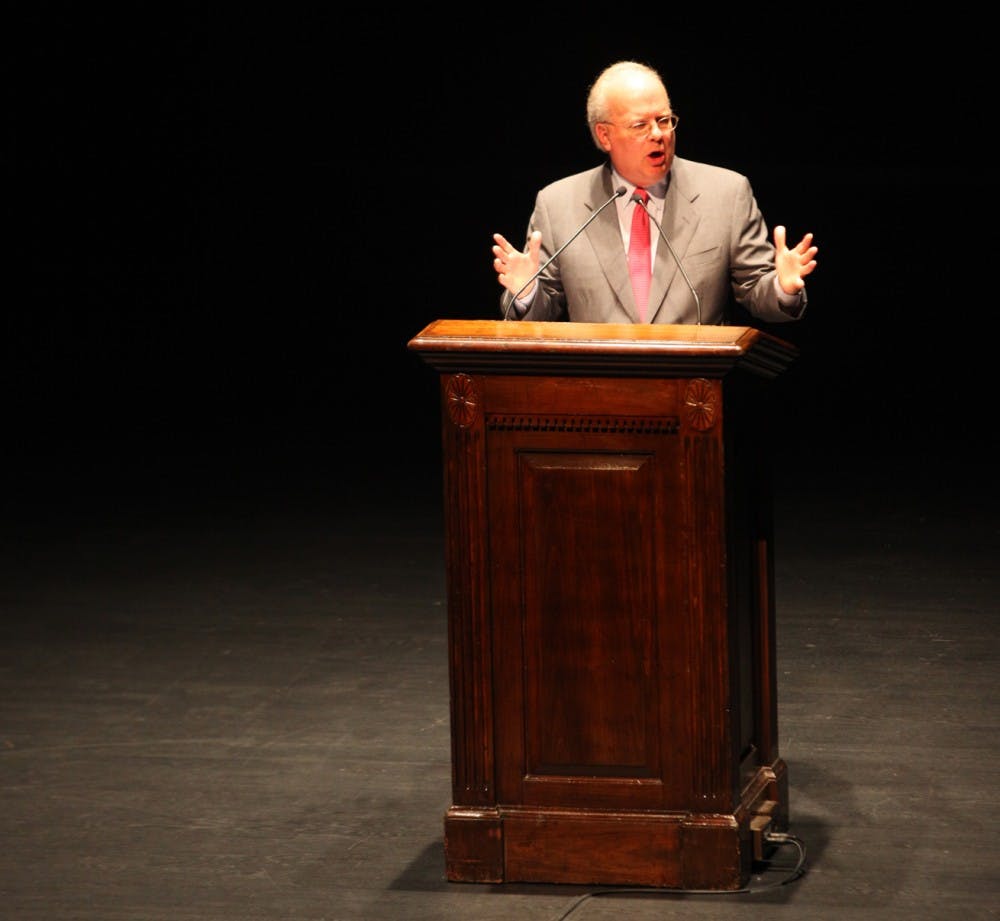The attacks on Sept. 11, 2001. Land wars in Iraq and Afghanistan. The escalation of the Israeli-Palestinian conflict. Nuclear proliferation throughout the globe. Regardless of your feelings about former U.S. President George W. Bush, he and his administration navigated irrefutably difficult and dangerous issues of national security.
And despite our evaluations of the effectiveness of his policies to deal with these issues, one thing cannot be denied: right or wrong, Bush put national security above politics. One otherwise unremarkable example of this, which takes on immense meaning in light of recent actions by the Trump administration, is Bush’s refusal to allow political strategist Karl Rove a seat on the National Security Council.
Bush’s rationale for this was that the Council was a forum to be used by the president to assess security threats to the country without any actors present who might sway him to consider political ramifications over the safety of the nation. The chief operators in the room who would have advised Bush, and indeed every modern president save the current commander-in-chief, were the chairperson of the joint chiefs of staff and the director of national intelligence. These two acted as the mouthpieces of the U.S. military and U.S. intelligence agencies, respectively.
The Trump administration, however, has demoted these two individuals from permanent positions on the Council, and in their place installed Steve Bannon, President Trump’s chief political strategist.
Restructuring such a crucial council within the U.S. federal government is a marked statement about the priorities of this administration. Not only should it be cause for concern because, unlike the Bush administration, the present one seems to value political machination over national security, but because of the character of the individual who was promoted to a spot on the Council, thereby pushing out the two most important national security officials in the country.
During a 2010 radio interview, Bannon stated, "Islam is not a religion of peace. Islam is a religion of submission. Islam means submission."
In their divorce settlement, Bannon’s ex-wife suggests that Bannon prevented their daughters from attending school at an institution which, in Bannon’s view, had too many Jewish students. He also believes Black Lives Matter to be a vast left-wing conspiracy. He was once quoted as saying “What if the people getting shot by the cops did things to deserve it? There are, after all, in this world, some people who are naturally aggressive and violent.”
President Trump drastically changing the structure of one of the most important institutions within the executive branch of the national government, thus compromising our national security, is not just an isolated incident of his undervaluation of the importance of maintaining confidentiality regarding military and intelligence issues.
A recently released tape of Trump speaking to members of one of his golf clubs revealed that the President invited these members to sit in on interviews with potential cabinet picks. Earlier this month, Trump showed similar, though perhaps more troubling, indiscretion as he discussed potential responses to North Korean nuclear weapons testing in full public view of members at his Mar-a-Lago resort.




